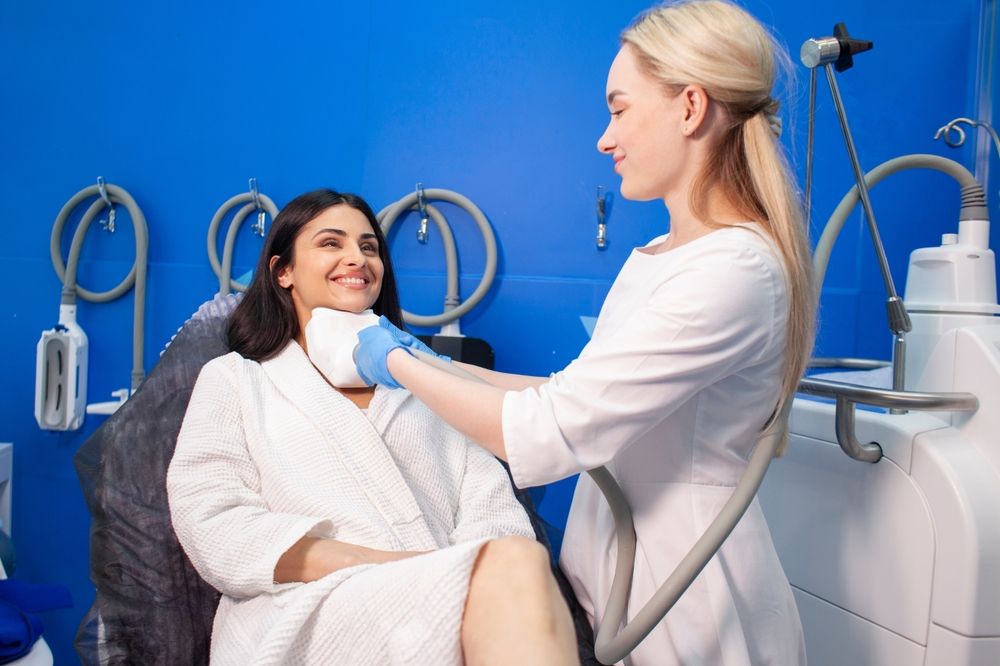A tummy tuck, or abdominoplasty, is a transformative surgery that can create a firmer, more toned abdomen. However, optimal recovery depends on more than surgical skill alone. Nutrition plays a vital role in how the body heals, how quickly swelling resolves, and how strong a patient feels throughout the recovery process.
At North Charlotte Plastic & Reconstructive Surgery in Huntersville, NC, patients are encouraged to think of nutrition as an essential part of their surgical journey. Proper nourishment provides the body with the building blocks it needs to repair tissues, fight infection, and regain strength. Patients who focus on eating well both before and after surgery often experience smoother recoveries and better results.
Preparing Your Body Before Surgery with Smart Food Choices
The weeks leading up to a tummy tuck are an ideal time to begin focusing on healthful eating habits. Pre-operative nutrition should focus on strengthening the immune system, minimizing inflammation, and ensuring that the body is in the best possible condition for healing.
Patients are advised to increase their intake of lean proteins, colorful fruits and vegetables, whole grains, and healthy fats. Proteins such as chicken, fish, eggs, and legumes help build and repair tissues, while antioxidant-rich produce like berries, leafy greens, and sweet potatoes support immune function. It is equally important to limit processed foods, added sugars, and excessive sodium, which can contribute to inflammation and fluid retention. Hydration is another key element, as being well-hydrated helps with circulation and organ function during surgery.
Essential Nutrients That Support Healing
Certain nutrients are particularly important for a successful recovery after a tummy tuck. Patients should aim to incorporate the following into their diets before and after surgery:
- Protein: Promotes wound healing and prevents muscle loss
- Vitamin C: Supports collagen production and strengthens the immune system
- Zinc: Aids in tissue repair and reduces inflammation
- Vitamin A: Enhances immune response and cell growth
- Omega-3 fatty acids: Help manage inflammation and promote cardiovascular health
By focusing on meals rich in these nutrients, patients provide their bodies with the tools needed to heal efficiently. Supplements may be recommended if dietary intake is insufficient, but it is important to discuss any supplementation with the surgeon ahead of time.
Nutrition After Surgery: What to Eat During Recovery
Post-operative nutrition should be simple, soothing, and supportive. In the first few days after a tummy tuck, patients often experience reduced appetite, so it is important to have easy-to-digest, nutrient-dense foods on hand. Smoothies, soups, broths, and soft-cooked vegetables can offer nourishment without overwhelming the digestive system.
As recovery progresses, patients should gradually reintroduce solid foods while continuing to prioritize lean proteins, fruits, vegetables, and whole grains. High-fiber foods can help prevent constipation, a common issue after surgery due to reduced activity and medications. Patients should avoid high-sodium foods that can exacerbate swelling, and limit alcohol, which can interfere with wound healing and dehydration.
Staying Hydrated and Managing Swelling
Hydration plays a critical role during the recovery period. Drinking sufficient water helps flush toxins from the body, regulates blood pressure, and supports optimal organ function. Herbal teas and electrolyte-rich fluids without added sugars can also contribute to hydration goals.
Managing swelling after a tummy tuck is another important part of recovery. In addition to staying hydrated, consuming potassium-rich foods such as bananas, avocados, and spinach can help balance fluid levels. Following the surgeon’s recommendations regarding compression garments and limited physical activity will also aid in minimizing swelling and promoting comfort.
Common Pitfalls to Avoid in Your Recovery Diet
While focusing on healthy foods is essential, there are some common mistakes patients should be mindful of during recovery. Crash dieting or severely restricting calories in an attempt to “maintain results” can actually hinder healing and weaken the immune system. The body requires adequate energy to rebuild tissues and fight infection, and under-eating can delay recovery.
Another mistake is relying too heavily on processed foods for convenience. While it may be tempting to reach for packaged snacks or frozen meals during downtime, these foods often contain high amounts of sodium, sugar, and unhealthy fats that can prolong swelling and discomfort. Preparing meals ahead of surgery or having healthy meal delivery options arranged can help patients stick to nutritious choices without extra effort.
Building Long-Term Healthy Habits After Recovery
Recovering from a tummy tuck provides a unique opportunity to establish lasting healthy habits. Many patients find that the changes they make during their recovery set the foundation for a healthier lifestyle moving forward. Continuing to eat balanced, whole-food meals and engaging in regular physical activity after healing can help maintain surgical results and improve overall well-being.
At North Charlotte Plastic & Reconstructive Surgery in Huntersville, NC, the focus is on helping patients not just achieve beautiful results, but also enjoy better health. By treating nutrition as a key part of the surgical process, patients set themselves up for smoother recoveries, better outcomes, and a higher quality of life.
Resources
Shermak, M. A. (2012). Body Contouring After Massive Weight Loss. Clinics in Plastic Surgery.
Shaw, R. B., & Katzel, E. B. (2010). Nutrition and Wound Healing. Clinics in Plastic Surgery.
Kenkel, J. M., & Armstrong, D. (2019). Optimizing Outcomes in Body Contouring Surgery: The Role of Nutrition. Aesthetic Surgery Journal.



